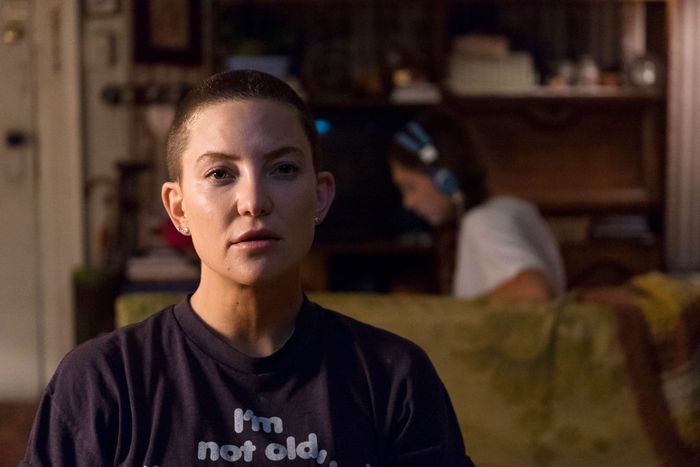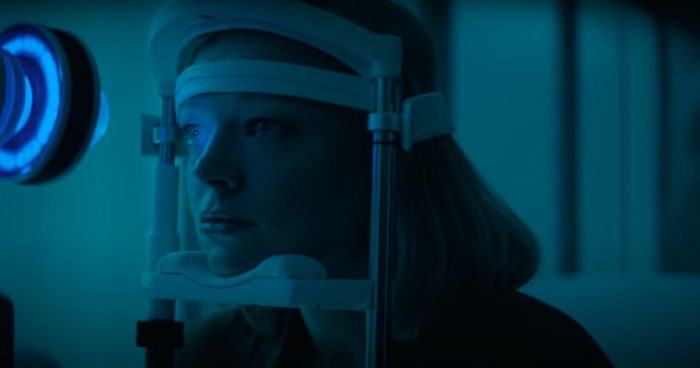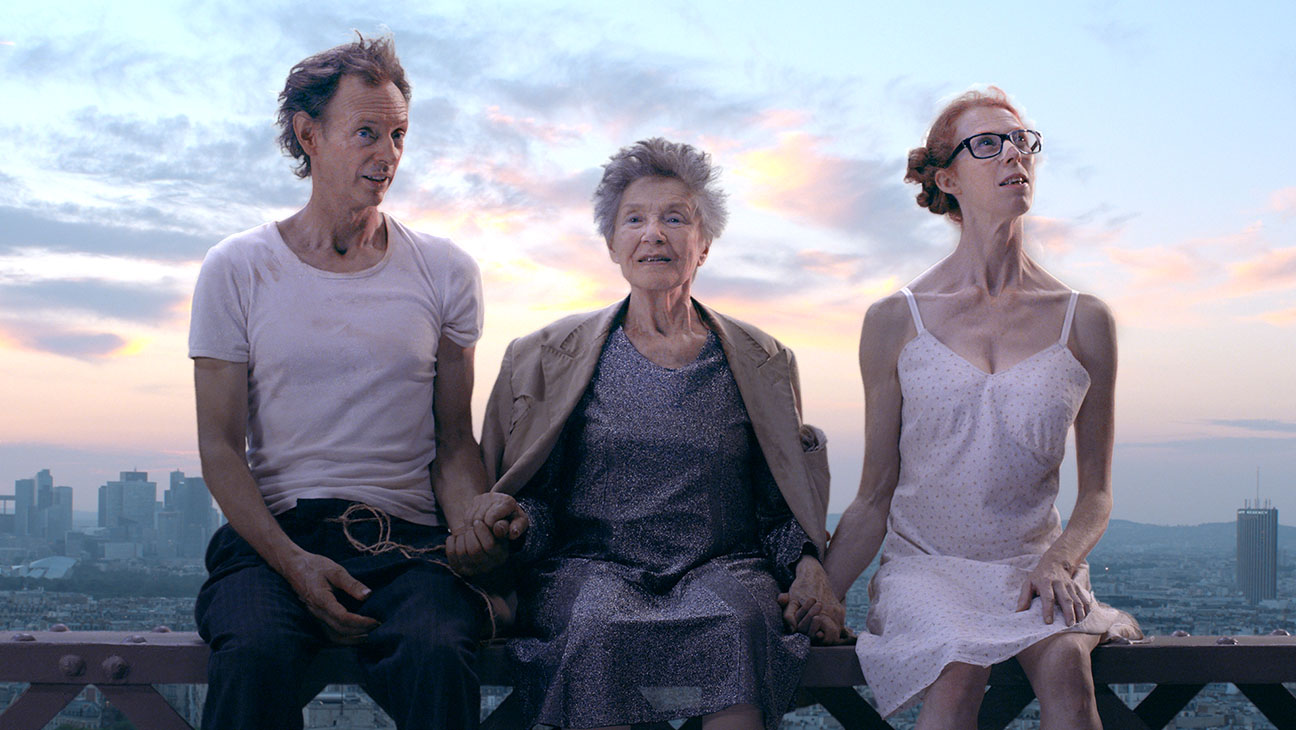In 2015, singer/songwriter Sia announced she was making her first film and that it would star frequent collaborator Maddie Ziegler. When a first-look was released last year, it drew considerable backlash.Particularly towards Sia casting a neurotypical person playing a character that is living with the disorder. Co-produced and co-writer by the artist herself, Music strives to link a lot of movie genres together to be something of coherence. Sometimes, it’s a musical, a drama, a comedy, a romance, or a coming-of-age story. None of which the movie hones in on to do well enough. Lastly, it may offend many of the viewers it desires eyes from in the process.
Music (Maddie Ziegler) is an autistic pre-teen whose grandmother just passed away. The major problem with this portrayal is that it feels like someone playing what they think an autistic person looks and acts like. Within the first part of the movie, there are two scenes in which characters try to physically restrain Music. This has been subject to a lot of criticism from parents of autistic children and organizations. They pepper musical segments throughout the film, almost like small interludes. It’s attempted as a creative expression of Music seeing things differently from others. These also happen with other characters in the film to portray conflict artistically. In their entirety, they feel as if they were added to lengthen the run time. The musical breaks do not really add anything of substance to the plot itself. One, in particular, is a really deep red which could be a sensory overload if an autistic person was watching the film.
The primary focus of Music is not really on Music herself after the first act. Her half-sister Zu (Kate Hudson) is recently sober and tasked with taking care of Music after their grandmother passes. As she has trouble, their neighbor Ebo (Leslie Odom Jr.) comes over and helps because he’s familiar with the care that she needs. When Ebo explains to Zu how Music processes things in the world, it’s all in a 3-4 minute scene. Then it feels as if Music is more background noise or a hindrance to Zu’s life. She doesn’t have a particular story arc in mind other than the random breaks.
What comes at the forefront is a potential love story for Zu and Ebo and the fact that Zu helps her friend Rudy (Ben Schwartz) sell drugs. Zu’s fight with addiction gets more of an emphasis and care put upon it. As with other films that bring in that theme, there is something that anchors them to change their lives around. For her, it’s a potential life with Ebo (in which we find that he’s also dealing with an HIV diagnosis). That would be fine, but Zu’s story builds her as a selfish, unlikable character for half the film. Hudson and Odom Jr. do the best with what they are given, but the storyline doesn’t build up any emotional semblance to root for these characters to find happiness. Music is a film of characters with a random assortment of problems, but doesn’t care to give you a reason for them to get solved.
By the time meets its end where everything has been presumably resolved, it doesn’t earn any of the happy-go-lucky moments. Zu has spent most of the movie either trying to pawn Music off on others or get rid of her entirely. It doesn’t build any of the sister bonding moments that could have been explored further. Granted that their grandmother passed away and her dying wish in her will was for Zu to look after Music. If there was a need to bring awareness to autism and be a champion to bring attention to the disorder, all of that was missed. The audience never knows what it means to care for Music or what her day-to-day tasks are other than walks, wanting eggs, or watching a child television show.
The one thing Sia is able to show is an extension of her musicianship. As a film that is supposed to be uplifting and eye-opening, it quickly becomes disinterested in being a champion for the community it draws from.
Photo Credit: Vertical Entertainment













